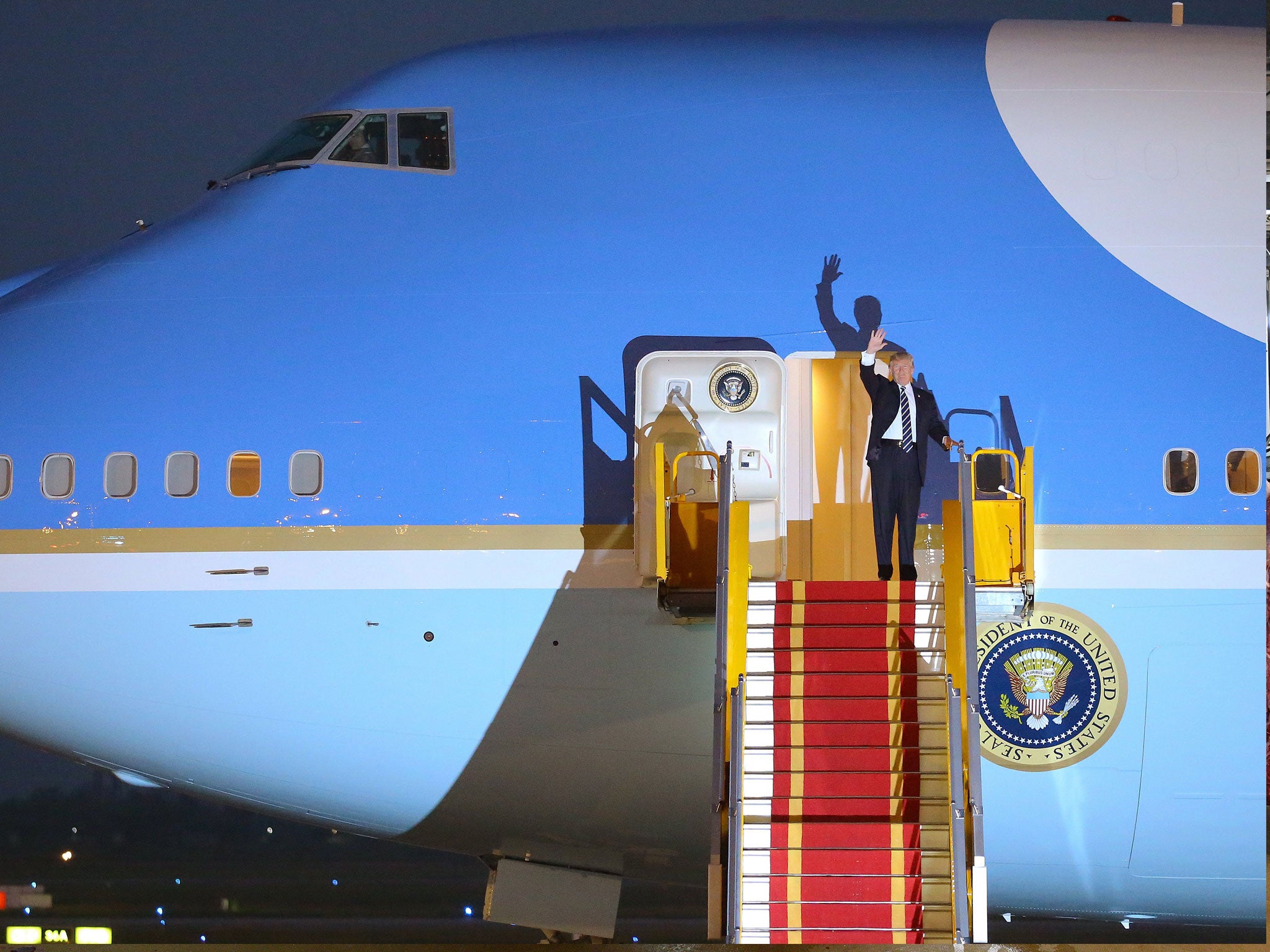Far from being a global leader, Donald Trump’s Asia trip shows that he is being played
The Chinese have rolled out the red carpet and thus avoided both tricky questions of the sort usually asked by Western leaders and any sort of confrontation over trade


Such is the paradoxical nature of Donald Trump's Presidency that it should perhaps have come as no surprise that the man who swept to power on the promise of putting “America First” should undertake a lengthier tour of Asia than any of his three most recent predecessors.
Perhaps he decided that it is more pleasant to be feted as a foreign dignitary than hated as a divisive head of state. Certainly he enjoyed many warm words of welcome from those he visited during his trip – and he repaid the compliments by the bucketload. Yet it remains unclear whether Trump actually achieved a great deal during his 11 days away.
At the outset, he was said to have three objectives, according to General HR McMaster, the US National Security Adviser. First was the promotion of democratic freedom and openness; second was to press for 'fair' trade to boost America's prosperity; third was to deal with North Korea.
In relation to the first aim, it might have been thought that the President would raise concerns over human rights abuses by China, or the large-scale killing of drug pushers in the Philippines, or the lack of media freedom in Vietnam. When it came to it, though, he evidently felt it was a little impertinent to be so rude. He is, after all, always wary of causing offence.
As for the second, he has regularly railed against Chinese trade policies, which he argues amount to an assault on America's economy. Yet when he was actually in Beijing, he simply told President Xi what a “special man” he was (Xi, not Trump, though he probably feels the same about himself).

When it came to North Korea, Trump's attempts to rally a co-ordinated regional response were undermined by his inability to resist a childish Twitter spat with Kim Jong-un.
Of course, Trump can point to a few macho statements – mostly made about China when he wasn't in the country – which might convince his fans at home that he's still fighting the good fight on behalf of US workers. But the evidence that he has come anywhere near achieving something concrete in the last week and a half is slim to say the least.
What's more, he also gave a good impression of furthering his cosy relationship with Vladimir Putin, infuriating America's intelligence community by explaining that he'd – yet again – asked the Russian President whether he had interfered in the US election and had been reassured by his answer in the negative. Not only that, complained Trump, but poor old Vlad felt insulted by the constant impugning of his reputation by suggestions to the contrary.
As ever with Trump, it is hard to know whether his apparent missteps are intentional – an extension simply of his dismissal of the US establishment and the way things have been done by his predecessors – or whether he is acting on the hoof, pulling punches when flattered and throwing them when riled.
Increasingly however it feels as if Trump – the great entertainer-President – is being played. The Chinese roll out the red carpet and thus avoid both tricky questions of the sort usually asked by Western leaders and any sort of confrontation over trade. Putin, meanwhile, appeals to Trump's own inflated notion of ego by complaining that claims of Russian meddling in America's democratic process amount to a personal slight. Trump responds by defending his fellow strongman leader and attacking the conclusions of his own intelligence agencies.
In the South Korean leg of his tour, Trump gloried in being introduced to the National Assembly as the "leader of the world". But the truth is almost the diametric opposite: Trump is being led, quite often in ways that appear at odds with American national interests, which is a remarkable state of affairs.
The counter-argument deployed by the President is that America's foreign policy in many arenas has been a failure over many years and his approach will, at some stage, pay dividends. Yet, such an argument pre-supposes that different policies in the past – towards Chinese trade for instance, or Russian diplomacy, or the Middle East – would have had alternative outcomes. It also relies on Trump’s bluster turning into something demonstrable. That is a dangerous game indeed.
But maybe that is the central problem – that to Trump, the Presidency is simply a game, in which beating losers and vying for personal glory are the key aspects. Worse still, while Trump thinks it's a game for single players, Russia, China and others understand that it's all about teams. And in the last few days they have benefitted from a series of Trump own goals.
Much more of this and America will find that it is very far from being first in the modern world order.
Join our commenting forum
Join thought-provoking conversations, follow other Independent readers and see their replies
Comments
Bookmark popover
Removed from bookmarks